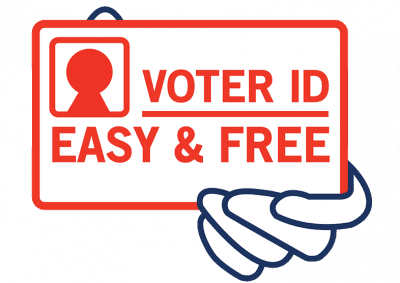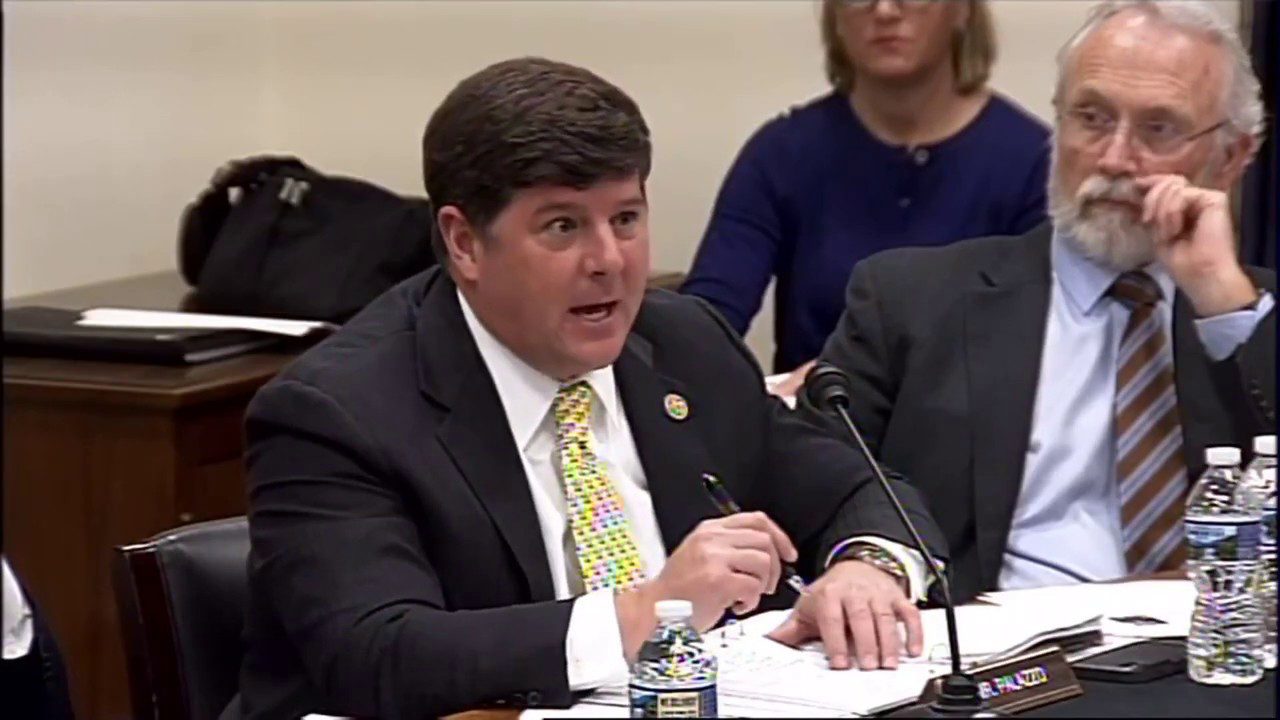
Georgia’s election reforms have drawn much attention as President Joe Biden has portrayed them as “Jim Crow on steroids.”
Biden’s words have cajoled corporations like Coca-Cola and Delta Air Lines to speak against the election reforms, saying they are discriminatory, making it harder for those in the black community to vote. Even Major League Baseball took Biden’s words to heart and moved their All Star game out of Atlanta, which has a 51% African American population, to Denver, which has a 9% African American population.
Other states, mostly led by Republicans, are considering similar election reforms, citing lack of controls.
At the core of the Democrats’ argument against the Georgia election reforms passed by Republicans in that Southern state is the notion that absentee voter’s identification should be verified in a stricter manner than it has in the past. This concern arose during the 2020 election. Absentee ballots are traditionally where election fraud occurs, if there is any, in an election.
Prior to this new law, Georgia matched signatures on file with those voting absentee to verify ballots. Under the new law, voters will be asked to provide their driver’s license or state ID card number to apply for an absentee ballot, or the last four digits of their Social Security number, to verify who they are prior to receiving their ballot. The state already requires voters to show a photo ID to vote in-person.
Mississippi’s Successful Voter ID Path
Claims that Voter ID would result in voter disenfranchisement were rampant when Mississippi undertook its effort to implement Voter ID. Then Mississippi NAACP President and now National NAACP President Derrick Johnson said he was convinced that it was an over-processed effort by white political leaders to keep blacks home on Election Day.
Mississippi mainstream media journalists passed off a report from the George Soros funded Brennan Center for Justice in New York as a purely scholarly, non-partisan advocacy piece. They attempted to tell Mississippians how difficult it would be for low income people to obtain a valid form of identification.
Probably, the loudest media voice on doomsday claims regarding Voter ID was the late Bill Minor, who wrote an op-ed on the Mississippi Voter ID law, saying it meant suppression, and calling then Secretary of State Delbert Hosemann “Votemeister-General” and “Herr Hosemann,” referring to the Republican office holder in terms of World War II Nazi controlled Germany.
“Herr Hosemann prides himself for thinking up ways to suppress certain citizens from voting. His key weapon: state-issued photo ID,” Minor wrote.
Minor would go to advance the narrative against Voter ID in another op-ed where he claimed Voter ID “has a lot to do with keeping people (certain people, mind you) from voting. Those ‘certain’ people are heavily populated by blacks (of which we have more than any state), Hispanic and Asian minorities, elderly or handicapped people, and college-age people.”
Nearly every Mississippi news outlet ran these hit pieces against Voter ID and Hosemann, the state’s chief elections officer at the time, advancing the notion that Voter ID was bad, that it would disenfranchise voters, and that it was discriminatory in practice – the same thing being said in Georgia today.
Yet, none of those dire predictions proved true in Mississippi, thanks in large part to the steady hand of now Lt. Governor Delbert Hosemann.
Columnist Sid Salter recognized this fact when he wrote that the then Secretary of State had “orchestrated the orderly, well-planned implementation of Mississippi’s voter identification law,” noting that Voter ID was “much easier implemented than political alarmists had predicted.”
The net result is that there have been no lawsuits over Voter ID in Mississippi. There have been no meaningful claims since the implementation of the program that it has disenfranchised voters or suppressed participation in any way. In fact, in 2020, Mississippi had near record voter turnout.
Delbert Hosemann’s Role
Y’all Politics recently sat down with Lt. Governor Hosemann to recap how Mississippi was successful in its implementation as it continues to be the only state that has not been sued over its Voter ID law.
“Well, I’d like to think we had a relatively good Secretary of State for a while and one of the things we ran on 12 years ago now, was to implement a voter ID and have secure elections,” said Hosemann.
 Hosemann said the first few years of attempting to make that a reality was a struggle. He looked at other states and how they were going about implementing Voter ID.
Hosemann said the first few years of attempting to make that a reality was a struggle. He looked at other states and how they were going about implementing Voter ID.
At that time, states like Texas and South Carolina were currently getting sued over their Voter ID laws by the Civil Rights Division of the U.S. Department of Justice. During that time, approval from the federal government was required to make voting changes. There was also a lingering decision from the Shelby County v. Holder case that had not yet been decided by the Supreme Court.
Hosemann said as he was studying those cases he made the decision to go to Washington D.C. and meet with the DOJ. He with Christian Herren, former Chief of the DOJ’s Voting Rights Division. In those meetings Hosemann said he explained to those present why he believed it was important for Mississippi to have Voter ID.
Following the approval of the Voter ID referendum, Initiative 27, Hoseman went back to D.C. and visited again with Herren’s office to explain that this was something the people of Mississippi overwhelmingly supported but he wanted to work together with the DOJ to implement it seamlessly.
According to Hosemann, he was told no other state had offered a proposal like Mississippi’s,
nor had they taken action to have meetings with the DOJ before moving forward.
“I particularly didn’t want him to sue me. I remember it got dead quiet when I said that, at that time,” said Hosemann, telling Herrin, “Besides I had to get an ID to get in here to see you so I don’t see why you wouldn’t have one to vote.”
During the 2012 Legislative session House Bill 921 was introduced which fulfilled the mandates passed in Initiative 27.
Because of the DOJ’s concerns, Hosemann hired a New Jersey company, Edison Research, to conduct an exit survey during the November 6, 2012 General Election. They surveyed nearly 6,000 Mississippians and found that more than 98 percent that were surveyed currently possessed one of the forms of qualifying ID.
Then on June 25, 2013 the United States Supreme Court ruled Section 4 of the Voting Rights Act of 1965 to be unconstitutional which put Mississippi on the same playing field as other states. The Shelby County v. Holder case made it so the Section 4 formula could no longer be used as a basis for subjecting jurisdictions to pre-clearance’s in that county. That meant that any jurisdiction identified by the formula in Section 4(b) no longer needed to seek clearance for new voting changes unless they were covered by a separate court order.
Hosemann said by 10am on the morning of the decision, Texas had sent a press release saying they would be ignoring anything from the DOJ. However, then Secretary Hosemann went a different route. He continued his working relationship with Chief Herren, explaining that Mississippi was determined to meet all constitutional requirements.
The Lt. Governor said he believes that tactic made a difference for Mississippi’s laws being implemented without pushback from the DOJ.
Prior to the June 2014 Congressional Primary election, then Secretary Hosemann contacted Chief Herren for direction on how the DOJ would respond to the new voting requirement in Mississippi. He also asked Herren to let him know if they planned to take any action. Herren responded as Hosemann recalls, saying, “I see no reason for the Department of Justice to be in Mississippi before the June 3 election.”
Hosemann said in that short conversation Mississippi was free to determine its own constitutional fate.
“I think it’s because we did our groundwork, we had our polling. We brought them into the
process instead of just ignoring them [DOJ]. I think it worked exceptionally well,” Hosemann said. “I think if you took a poll today between Democrats and Republicans and asked them today where they are on Voter ID in Mississippi, it would be higher than 62 percent.”
While many Democratic Party affiliated groups claimed Voter ID is an infringement of voters’ rights, like what is happening with Georgia’s law, Hosemann says they are just misinformed. He said Mississippi has not had near the problems other states had when it comes to the integrity of elections and that a successful voter ID program is part of that success story.
###
Sarah Ulmer contributed to this article, interviewing Lt. Governor Delbert Hosemann.











